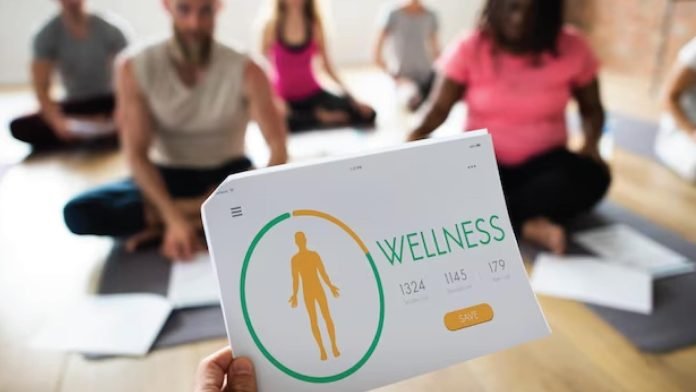The National Council for Mental Wellbeing announced a new training program to help employers reduce the negative impact of workplace fatigue and stress among employees across all professions. Mental Health First Aid (MHFA) at Work teaches employees how to recognize and respond to colleagues who may be experiencing a mental health or substance use challenge in the workplace. It offers an opportunity to meaningfully integrate mental health and substance use support into company culture as employers increasingly grapple with workforce mental health needs – such as rising levels of anxiety and depression – since the pandemic’s onset.
This employee training program comes at a critical time, as research has shown 40% of employees have reported that their jobs have had a negative impact on their mental health, and 75% of employees have indicated stigma was present in their workplaces. While conversations about mental health have increased in recent years, stigma remains a pervasive barrier to seeking help in work environments.
“Employers recognize the critical role mental health plays in driving personal and organizational success,” said Chuck Ingoglia, National Council for Mental Wellbeing president and CEO. “The focus on wellbeing in the workplace is growing due to societal awareness of mental health and substance use challenges. Prioritizing employee mental health is good for business. It supports employees’ wellbeing and enables employers to better attract and retain talent.”
“Mental wellbeing is a core component of overall health,” said Tramaine EL-Amin, vice president, Mental Health First Aid. “Stress, anxiety and other mental health challenges may affect professionals at any stage in their careers, and can have a direct impact on employee engagement, productivity and retention. By investing in skills-based mental health training, employers can take an active role and help shift the conversation in the workplace from stigma to support, creating a culture that embraces the wellbeing of all employees.”
Four training solutions
MHFA at Work is a series of skills-based courses delivered by trainers who have been recruited by the National Council for their diverse professional backgrounds, expertise in mental health and long tenure working with organizations to implement wellbeing programs. MHFA at Work trainings are available in person or virtually, and can be tailored to reflect your organizational culture. The courses, which build on one another to create a continuous learning path, include:
- Intro: A self-paced, mobile-friendly eLearning course that introduces employees to workplace wellbeing practices and teaches them how to understand and reduce stigma in the workplace.
- Certification: Instructor-led course resulting in MHFA at Work Certification that helps employees build the skills needed to recognize and respond to a co-worker who may be experiencing a crisis or noncrisis situation.
- Champion: Instructor-led workshop for employees who are motivated to serve as mental health advocates at work and deepen their skill set in assisting co-workers who may be experiencing mental health or substance use-related challenges.
- Transform: Interactive workshop for management, HR and legal professionals seeking to build and maintain a healthy workplace culture that enhances employee wellbeing. Participants will discuss their organization’s workplace culture and create an action plan that addresses factors impacting their employees.
Following completion of MHFA at Work, learners will be able to identify factors in the workplace that can impact mental wellbeing, take appropriate steps to help someone who may be experiencing a mental health challenge in the workplace, and practice self-care at work. Employees will feel empowered to have safe, respectful and effective conversations about mental health and substance use challenges at work and will increase their skill set and confidence in providing initial support to colleagues.
Focus on challenging industries
While each workplace comes with its own unique challenges, the retail, food and beverage service, and manufacturing industries consistently score as the most challenging workplaces for mental health. Recognizing the need for mental health and substance use support in these workplaces, the National Council has developed retail-, food-and-beverage-, and manufacturing-specific curricula that feature visuals, statistics and scenarios addressing specific challenges faced by workers in each industry so that the content is relatable and relevant.
As a long-standing partner of the National Council, fashion brand kate spade new york has implemented MHFA at Work trainings for its employees since 2018. It has also funded MHFA trainings for women and girls, as well as artists and entertainers located in the New York City/New Jersey area who were impacted by the COVID-19 pandemic. The company will be an early adopter of the new MHFA at Work for Retail product line, with plans to train nearly 1,000 employees in 2024.
“Over the last five years, kate spade new york has partnered with the National Council for Mental Wellbeing to provide Mental Health First Aid training to our nonprofit community partners, as well as over 130 kate spade new york corporate employees,” said Taryn Bird, executive director of Social Impact, kate spade new york. “We believe that mental health is a fundamental human right, and know the foundational importance it has to our overall empowerment, especially in the workplace. We are thrilled to be a launch partner for MHFA at Work’s Retail training, providing vital, industry-specific training to over 900 of our store leaders this year.”
The MHFA at Work curriculum is research informed, with more than 40 peer-reviewed studies demonstrating increased mental health literacy, confidence in helping others and empathy toward individuals in distress. When provided within the larger context of workplace policies and procedures, MHFA at Work can promote a healthy and high-performing workplace that embraces the importance of mental health.
Explore HRtech News for the latest Tech Trends in Human Resources Technology.












